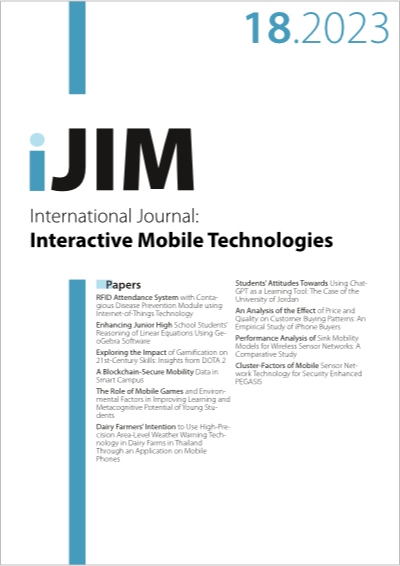The Role of Mobile Games and Environmental Factors in Improving Learning and Metacognitive Potential of Young Students
DOI:
https://doi.org/10.3991/ijim.v17i18.42437Keywords:
sensitivity, childhood, gamification, metacognition, learning, neurocognitionAbstract
Environmental sensitivity, which refers to the capacity to recognize and react to environmental stimuli, has been linked to increased levels of metacognition, which is the capacity to learn about one’s own learning processes. Sensory processing sensitivity (SPS) is a characteristic that can make people more sensitive to the stimuli and settings in their surroundings. Regarding the development of mobile game-based educational procedures, the study of the neurocognitive bases of the mechanisms underlying them, such as metacognition and environmental factors, could play a crucial role in the implementation of these educational practices. The purpose of the current narrative review is to identify the key mechanisms by which mobile games affect young learners’ metacognitive and environmental sensitivity profiles and to suggest future research directions on the specific selection of gamification-based educational interventions.
Downloads
Published
How to Cite
Issue
Section
License
Copyright (c) 2023 Antonios I. Christou, Stella Tsermentseli, Athanasios Drigas

This work is licensed under a Creative Commons Attribution 4.0 International License.



